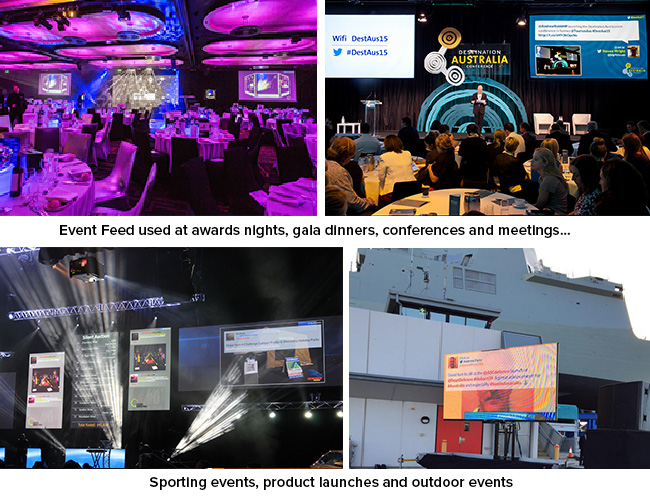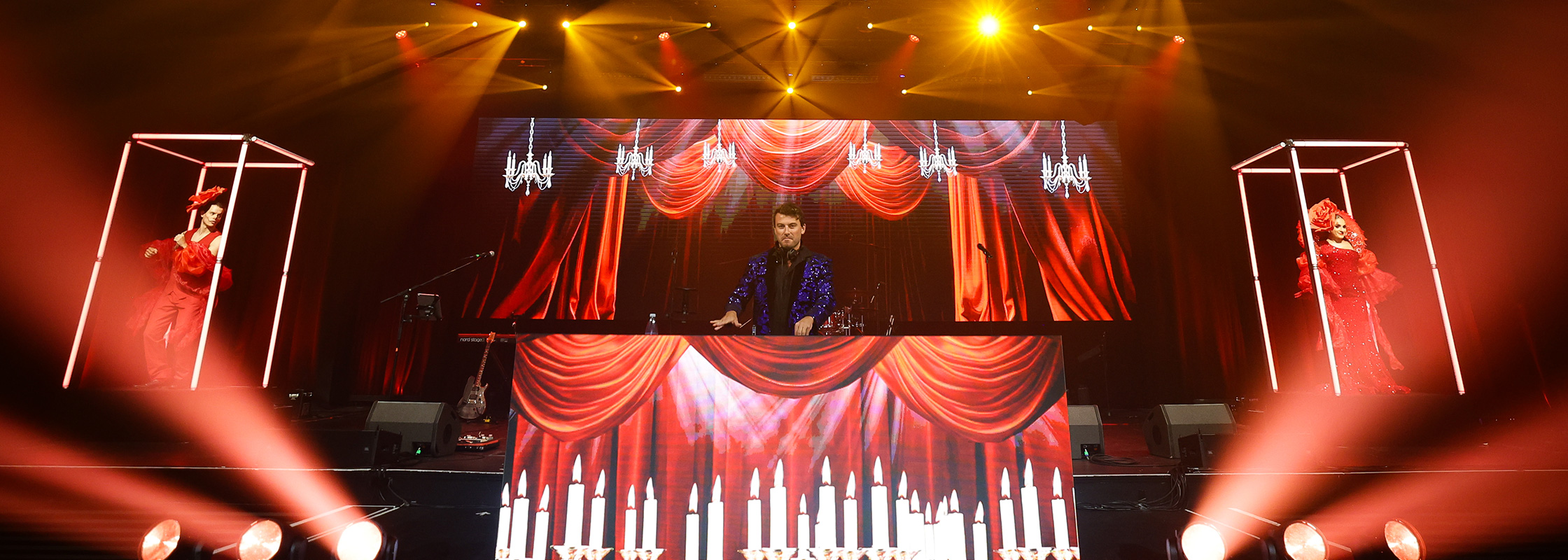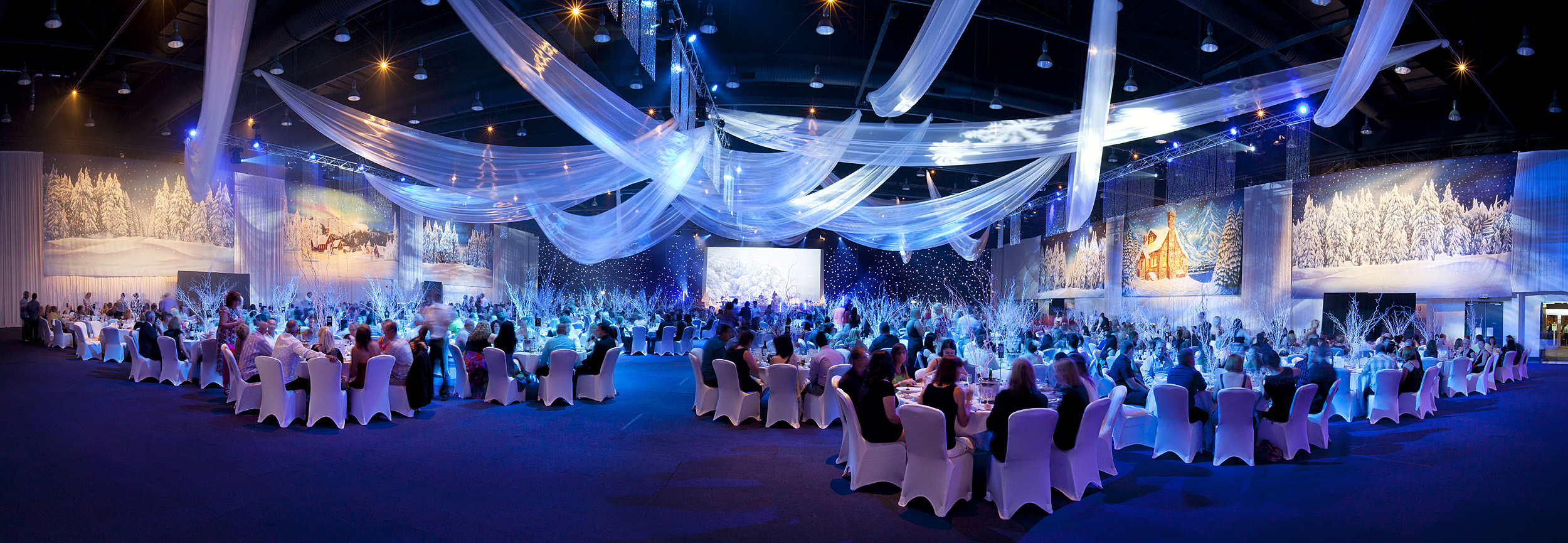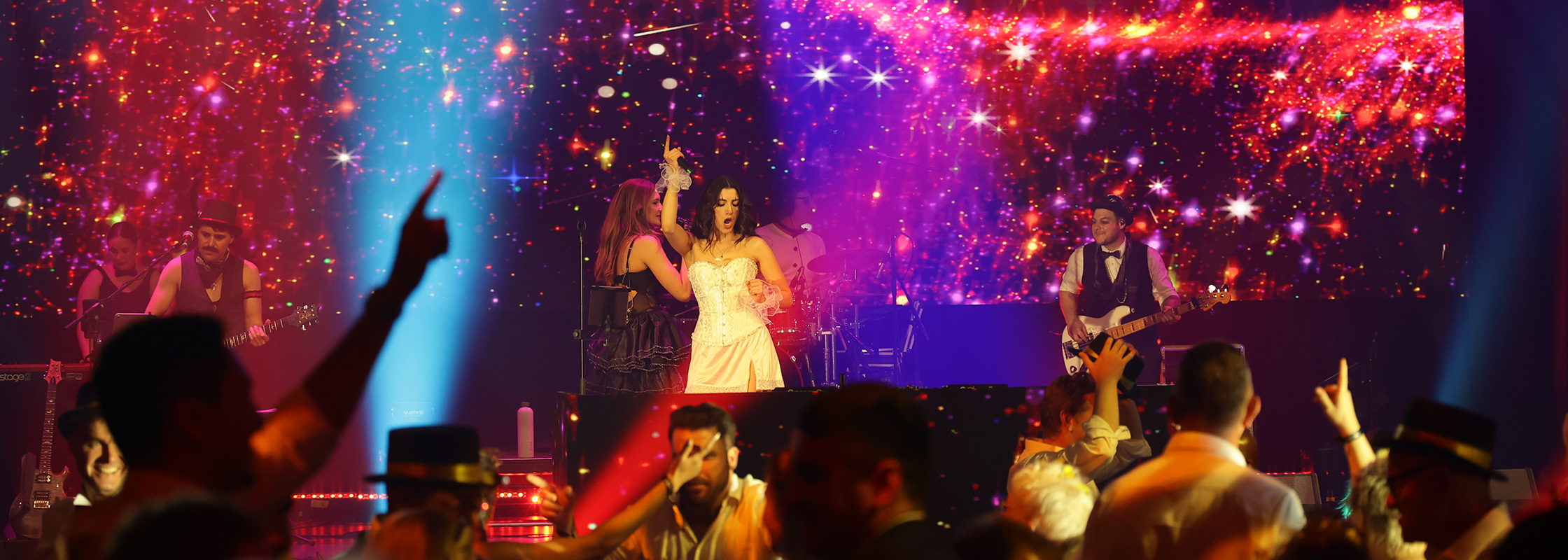Most of the conferences and networking events you’ll go to will have their own hashtag. You’ll see event planners and marketers alike splashing the hashtag on all communications leading up the event and on the event day itself. The hashtag has become so ubiquitous that it has now become odd not to have one.
As Mashable explains, the pound sign (or hash) turns any word or group of words that directly follow it into a searchable link. This allows you to organise content and track discussion topics based on those keywords.
In the events world, hashtags help event attendees organise their online conversations – about panels, speakers, ideas and opinions – and stay connected virtually long after the event itself has ended. These online conversations have become an important part of the life cycle of an event. We’ve previously discussed the trend towards creating online communities to help promote your event. This hashtag will be crucial in executing this strategy.
As corporate event organisers look for new ways to engage their audiences and provide rich brand experiences, incorporating a hashtag is one of the simplest and most effective tools in your marketing arsenal. However, if done wrong and without proper consideration you could be heading towards a huge #fail with no one using it or worse, facing public humiliation (remember Susan Boyle’s album launch #susanalbumparty). That’s why it’s important to choose the right hashtag so that people actually use it.
The four golden rules of an effective event hashtag
- It’s Unique
- Make it memorable
- It makes sense
- Keep it short
1. It’s unique
The purpose of a hashtag that’s associated with an event is to enable those at the event (and sometimes those who couldn’t make it in person) to connect to one another, share their thoughts, experiences and content, and continue to network after the event.
So if your hashtag is being used by another event or group, or is too broad, it muddies the conversation and makes it hard for your group to find each other.
The best event hashtags are those that are unique to the event at hand. If, say, your event is a travel event, you probably don’t want to choose a hashtag like #travel or #lovetotravel (too broad and not specific enough). You can easily cull unsuitable hashtags by performing a quick search on Twitter and Instagram to see what results are already there. We recommend creating a list of 3 – 5 possible hashtags that you’d like to use, run a search on them and decide from there which one to go with. If all fail, then start again!
One thing to consider is dating your hashtag. You would need to decide whether you want it to be specific to that year’s event, or whether you have an ongoing event and want to build traction behind the hashtag – #SCtech15 vs #SCTech.
2. Make it memorable
It would seem only reasonable that if you’re displaying your hashtag on every piece of communication to promote the event, and throughout the venue on the event day, that audiences would remember your hashtag? Well, unfortunately this isn’t the case.
If you’re organising a travel expo event in June of 2015 and the hashtag is #TravlXpoJn15, it is highly likely people won’t remember it, misspell it or can’t be bothered to go back and search for it. Was it #travelexpojune2015 #travelex15?
The best hashtags are the most memorable. They relate well to the event at hand (a travel event should probably have the word “travel” in it, for instance), and they stick in the brain either because they’re short and sweet, they make obvious sense, or they’re fun and cool.
A good example for this could be #TravelExpo15 (or whatever the name of the event is).
3. It’s intelligible
Looking back at the previous Travel Expo example the hashtag – #TravlXpoJn15 – isn’t easily readable. When you see the letters you can partially understand what it is meant to say, but not being true words we wouldn’t easily remember it. You’ll also have to consider when in practice, upper case titles often get removed or people forget to add making your hashtag even harder to decipher – #travlxpojn15 (???).
It’s safer to use actual words than abbreviations unless they’re common ones such an inc. for incorporated. In this instance, a better and more sensible hashtag would be #travelexpo2015. It might be a little long, but at least anyone who sees it – whether they’re at the event or they just stumble across it while browsing social media – will understand what the hashtag is all about at first glance. Additionally, if your event attendees are not sure what the official event hashtag is, using something like the above example means it could be easily guessed.
Other things to consider:
- Spaces aren’t supported. Even if your hashtag contains multiple words, group them all together. If you want to differentiate between words, use capitals instead (#TravelExpo). Uppercase letters will not alter your search results, so searching for #TravelExpo will yield the same results as #travelexpo.
- Numbers are supported, so you can include dates to help identify your events.
- Only words and numbers are allowed so don’t try to include punctuation marks, ampersands or any other special characters
- Keep in mind that the @ symbol does something completely different. Using @ before a person’s Twitter or Instagram handle will post to them directly.
4. Keep it short and simple
Last but not least, you want your event hashtag to be short and sweet.
In this example, #travelexpojune2015 might be too long. It’s 19 characters long. If someone wanted to share a link, let’s say, while using your hashtag, they’d only have about 100 characters to write their message. And if they want to leave room for a retweet, they’re down to just about 80 characters. For a little context, the previous sentence was 87 characters long.
The shorter the hashtag, the more room your attendees will have to share their thoughts. So instead of #travelexpojune2015, you might want to shorten it to just #travelexpo – much shorter, and it has the added bonus of being useable after the month of the conference, in case you want to make it an annual event.
What’s next? Encouraging interaction at your corporate event
Now that you have applied the four golden rules to an effective event hashtag, how will you promote your hashtag to get audiences using it? We’ve mentioned previously that event organisers include the hashtag on their promotional materials and often the first speaker of the day will mention it during House Rules. However, these are still quite passive approaches. How do you start the conversation and actually encourage people to post?
What if we said you could display a live social feed of all the posts tagged with your event hashtag onto a large screen for all your audience to see? Event Feed is Encore’s social media wall which pulls in all posts from Facebook, Twitter and Instagram that include the event hashtag. Event organisers have been using it at conferences and awards nights across Australian and New Zealand and have found it to significantly increase their audience engagement and social spread of the event.

Interested in using Event Feed at your next corporate event? Head over to the Event Feed page for more information or contact us to start planning your next event.
Related Articles
Post originally seen on Adweek and repurposed for events




Comments